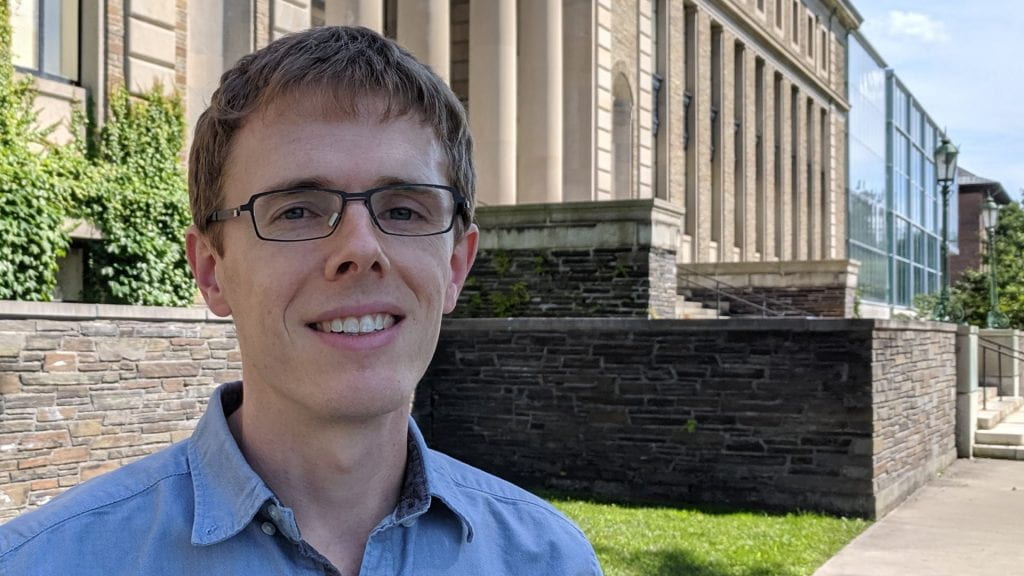- 2019-present: Assistant Professor, Cornell University
- 2016-2019: Postdoctoral research associate, University of Sheffield, UK
- 2013-2015: Postdoctoral research associate, University of Cambridge, UK
- 2010-2013: PhD in Physics, University of Cambridge, UK
- 2008-2010: Topmaster in Nanoscience, Rijksuniversiteit Groningen, The Netherlands
- 2002-2006: BS in Physics, Georgia Tech
Andrew originally trained as a physicist with an eye towards solving global problems. Not infrequently accused of being a spy, he spent two years working and studying in Russia and tried his hand at organic synthesis at the Max-Planck Institute in Mainz, Germany, and genetic engineering at the Manchester Interdisciplinary Biocentre in the UK. He chose to make a proper return to science in 2008, enrolling in the Nanoscience master’s programme at the Zernike Institute for Advanced Materials. There he studied topics from the fabrication and characterisation of nanomaterials to natural product synthesis. He joined the Polymer Chemistry and Bioengineering group of Prof. Andreas Herrmann, exploring the synthesis and characterisation of DNA-organic hybrid materials for applications from drug delivery to sensing to bioelectronics.
Equipped with this understanding of how to design and make such functional materials, Andrew turned to the main task for his PhD: saving the world with green energy (work in progress). He joined the Optoelectronics group at the Cavendish Laboratory (Cambridge, UK), under the supervision of one of the pioneers of organic electronics, Prof. Sir Richard Friend. Working in the laser lab, he used ultrafast spectroscopy to unravel the mechanism of singlet fission – this 2-for-1 deal for charge carrier generation has the potential to revolutionise the solar energy sector if we can just work out how to harness it. In a subsequent postdoc within the same group, he began to explore more elaborate spectroscopic methods and sophisticated molecular materials for fission, building up his network of collaborators along the way.
By 2016 it was high time for a change of scene, and Andrew moved to the University of Sheffield Department of Physics for a postdoc with Prof. David Lidzey into ‘exciton-polaritons’. These strange states are made of a mixture of light and matter, and they are widely studied for exotic phenomena like low-threshold lasing, Bose-Einstein condensation and even quantum simulation. Organic materials are often mocked or scorned in this field for being dirty, floppy and ill-defined, but they offer even more exciting opportunities, ranging from enhanced charge and energy transport to catalysis. Andrew led a study into the effects of polariton formation on singlet fission and related phenomena, leading to the breakthrough finding that this ‘strong coupling’ results in entirely new and more efficient ways for molecules to emit light.
In summer 2019 Andrew finally found his natural home as a physical chemist, joining the faculty of the Department of Chemistry and Chemical Biology at Cornell. He now aims to weave together the many strands of his past research, exploiting light-matter interactions in complex materials for fundamental study, functional applications and the pure fun of it.
